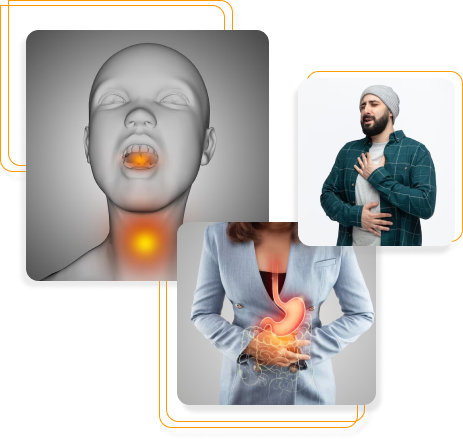
GERD
Gastroesophageal reflux disease, also typically called GERD, is a digestive system condition in which the contents of the stomach spill back into the oesophagus (food pipe).
Food normally moves from the mouth into the oesophagus, and then from the oesophagus into the stomach. The movement of food from the oesophagus into the stomach is regulated by two sphincters or valves: The Lower Oesophageal Sphincter (LOS) and Upper Oesophageal Sphincter (UOS).
According to Dr. Sanjoy Mandal, who is considered to be the best gastro surgeon in Kolkata, a malfunctioning LOS is the source of GERD. The LOS becomes weak or regularly relaxes, allowing stomach contents to regurgitate into the oesophagus. Backflow of the stomach’s contents, which contain acid, can irritate the food pipe, resulting in intractable symptoms. Acid reflux is another name for GERD. It normally causes chest pain (heartburn) that radiates from the stomach to the throat.
Causes Of GERD
It is impossible to pinpoint a single cause of GERD. Its emergence is influenced by a number of factors. The following factors, as listed by the gastro surgeon in Kolkata, can contribute to a faulty LOS:
Taking large meals
Temporarily loosening of the LES can be caused by stomach stretching.Hiatal hernia
It is a condition in which the stomach pushes up through the diaphragm.Obesity
People who are overweightStress and anxiety caused by excessive smoking
Consuming chocolate, carbonated beverages, chewing gums, fried foods, and other junk foods
Risk and Symptoms of GERD

GERD affects almost all at some point in their lives. It affects adults and the elderly the most, but it can also affect babies and teenagers.
The gastrointestinal surgeon in Kolkata says that children under the age of 12 usually do not have heartburn, but they do have one or more of the symptoms mentioned below.
 Inflammation of larynx
Inflammation of larynx Intermittent/persistent dry cough
Intermittent/persistent dry cough Difficulty swallowing
Difficulty swallowing Asthma attacks
Asthma attacksThe majority of patients have GERD symptoms such as:
 A burning feeling in the chest that also radiates to the throat
A burning feeling in the chest that also radiates to the throat Feel like having a lump in your throat
Feel like having a lump in your throat Vocal hoarseness
Vocal hoarseness Bad breath
Bad breath Burping, accompanied by a sour or acidic aftertaste in the mouth
Burping, accompanied by a sour or acidic aftertaste in the mouth Caries in the teeth
Caries in the teeth Difficulty swallowing
Difficulty swallowingTreatment of GERD
Taking over-the-counter drugs, in general, provides great relief. However, if the symptoms continue, you can consult your gastroenterology doctor in Kolkata.
As an acid reflux procedure, doctors usually recommend the following drugs.
Drugs that neutralise the acid that has already been formed include: Gelusil, Gaviscon, and Tums are antacids that provide immediate relief. Chronic usage, on the other hand, may cause diarrhoea or constipation.
Drugs that reduce acid production include:
1. H2 receptor blockers – These prevent the release of histamine, a gastric acid secretion stimulant. They prevent acid secretion for about 12 hours. Cimetidine, Ranitidine, and Famotidine are some of the examples of H2 receptor blockers. Side effects of these drugs include headaches, nausea, flatulence (gas in the stomach), and dizziness.
2. Proton-pump inhibitors (PPIs) – These medications block acid production more efficiently and for a longer period of time. When taken on an empty stomach, PPIs are quite effective. Some examples of PPIs are Rabeprazole, Omeprazole, Esmoprazole, Lansoprazole, and Pantoprazole
Take the first step towards a healthier you
